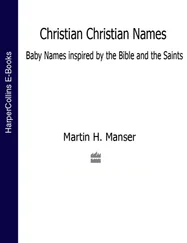Again we read in Acts 28:25, 26 that Paul said, "Well spake the Holy Spirit through Isaiah the prophet, unto your fathers, (26) saying, Go thou unto this people and say, By hearing ye shall hear and shall in no wise understand; and seeing ye shall see, and shall in no wise perceive, etc."Here Paul is quoting Isaiah's words as recorded in the 6th chapter of Isaiah, the 9th and 10th verses, and he distinctly says that the real speaker was not Isaiah, but "the Holy Spirit" who spoke "through Isaiah the prophet."
Turning now to the old Testament we read in 2 Sam. 23:2 this assertion by David regarding the things that he said and wrote: "The Spirit of Jehovah spake by me, and his word was upon my tongue."There can be no mistaking the meaning of these words on the part of any one who goes to the Bible to find out what it really claims and teaches. The Holy Spirit was the real speaker in the prophetic utterance. It was the Holy Spirit's utterance that was upon the prophet's tongue. The prophet was simply the mouth by which the Holy Spirit spoke. Merely as a man, except as the Holy Spirit taught him and used him, the prophet was fallible as other men are fallible, but when the Spirit was upon him, when he was taken up and borne along by the Holy Spirit, then he became infallible in his teachings; for his teachings were not his, but the teachings of the Holy Spirit. It was God who was then speaking, not the Prophet. For example, Paul merely as a man, even as a Christian man, doubtless had many mistaken notions on many things, and was more or less subject to the ideas and opinions of his time, but when he taught as an Apostle, under the power of the Holy Spirit he was infallible, or rather the Spirit who taught through him was infallible, and the teachings that resulted from the Spirit's teaching through him, were infallible, as infallible as God. Common sense demands of us that we carefully distinguish between what Paul may have thought as a man, and what he actually taught as an apostle. In the Bible we have the record of what he taught as an Apostle. Some one may cite as a possible exception to this statement 1 Cor. 7:6, 25, where he says: "But this I say by way of concession, not of commandment. . . . Now concerning virgins, I have no commandment of the Lord, but I give my judgment, as one that hath obtained mercy of the Lord to be trustworthy."There are those who think that Paul does not seem to have been sure here that he had the word of the Lord in this particular matter, but that is not the meaning of the passage. The meaning of v. 6 is that his teaching which he had just given was by way of concession to their weakness, and not a commandment as to what they must do. And the teaching of v. 25 is that the Lord, during His earthly life, had given no commandment on this subject, but that Paul was giving his judgment; but he says distinctly that he was giving it as one who had obtained mercy of the Lord to be trustworthy and furthermore, in the 40th verse of the chapter he distinctly says that in his judgment he had the Spirit of God . But even allowing that the other interpretation of this passage is the correct one, and that Paul was not absolutely sure in this case that he had the Word of the Lord and the mind of the Lord, that would only show that where Paul was not absolutely sure that he was teaching in the Holy Ghost he was careful to note the fact, and this would only give additional certainty to all other passages that he wrote.
It is sometimes said that Paul taught in his earlier epistles that the Lord would return during his lifetime, and that in this matter he certainly was mistaken. But Paul never taught in his earlier epistles, or any other epistles, he never taught anywhere, that the Lord would return during his lifetime. This assertion is contrary to fact. He does say in 1 Thess. which was his first epistle, the 4th chapter and 17th verse: "Then we that are alive, that are left, shall together with them(i.e., the believers who had already fallen asleep) be caught up in the clouds, to meet the Lord in the air; and so shall we ever be with the Lord."He does here put himself in the same class with those who were still alive when he wrote the words. He naturally and necessarily did not include himself with those who had already fallen asleep. In speaking of the Lord's return he does not say nor hint that he will be still alive when the Lord returns. It is quite probable that Paul did believe at this time that he might be alive when the Lord returned but he never taught that he would be alive . The attitude of expectancy is the true attitude in all ages for every believer. This was the attitude that Paul took until it was distinctly revealed to him that he would depart before the Lord came. I think it very probable that Paul in the earlier part of his ministry was inclined to believe that he would live until the coming of the Lord, but the Holy Ghost kept him from so teaching, and also kept him from all other errors in his teachings.
VI. THE HOLY SPIRIT IN THE APOSTLES GAVE NOT ONLY THE THOUGHT, BUT THE WORDS IN WHICH THE THOUGHT WAS TO BE EXPRESSED
Table of Contents
The 6th thing that the Bible makes clear as to the inspiration of the apostle and prophets is that, the Holy Spirit in the Prophets and Apostles gave not only the thought but also gave the words in which the thought was to be expressed . We find this very clearly stated in 1 Cor. 2:13: "Which things also we speak, not in words which man's wisdom teacheth, but which the Holy Spirit teacheth; combining spiritual things with spiritual words."One of the most popular of the false theories of Inspiration in our day is that the Holy Spirit was the author of the thought, but that the Apostles were left to their own choice of words in the expression of the thought, and that therefore in studying the Bible we cannot emphasise the exact meaning of the words, but must try to find the thought of God that was back of the words, and which the writer has more or less inaccurately expressed. There are many teachers in our theological seminaries to-day, and in our pulpits, who speak very sneeringly and superciliously of those who believe in Verbal Inspiration,—i.e., those who believe that the Holy Spirit chose the very words in which the thought he was teaching was to be expressed, but however sneeringly they may speak of those who believe in Verbal Inspiration, certainly the Bible claims that it was verbally inspired. The passage which I have just read makes it as plain as language can possibly make it that the " words " in which the Apostle spoke were not " words which man's wisdom teacheth, but which the Spirit teacheth ." Now if this is not the fact, if only the thought that was given to Paul was the thought of God, and he clothed the thought in his own words, then Paul was a thoroughly deceived man on a fundamental point, in which case no dependence at all can be placed in his teachings on any point, or else he was a deliberate fraud, in which case the quicker we burn up his books the better for us and all concerned. There is no possibility of finding any middle ground, and the attempts to find a middle ground have landed those who have tried it in all kinds of absurdities. If you have an exact and logical mind, you must take your choice between Verbal Inspiration and bald infidelity. Paul distinctly states that the words in which he conveyed to others the truth that was revealed to him were the words which the Holy Spirit taught him. The Holy Spirit himself has anticipated all these modern ingenious, but wholly unbiblical and utterly illogical and entirely false theories regarding his own work in the Apostles. The theory that "the concept" was inspired but the words in which the concept was expressed were not, was anticipated by the Holy Spirit Himself and exploded 1800 years before our supposedly wise 19th century theological teachers conceived it, and attempted to foist it upon an unsuspecting public. It was exploded eighteen centuries before it was exploited. Furthermore, the theory is absurd in itself. As the only way in which thought can be conveyed from one mind to another, from one man's mind to another man's mind, or from the mind of God to the mind of man is by words, therefore if the words are imperfect the thought expressed in those words is necessarily imperfect. The theory is an absurdity on its very face, and it is difficult to see how intelligent men could have ever deceived themselves into believing such a thoroughly illogical theory. If the words are not inspired the Bible is not inspired. Let us not deceive ourselves; let us face facts.
Читать дальше












